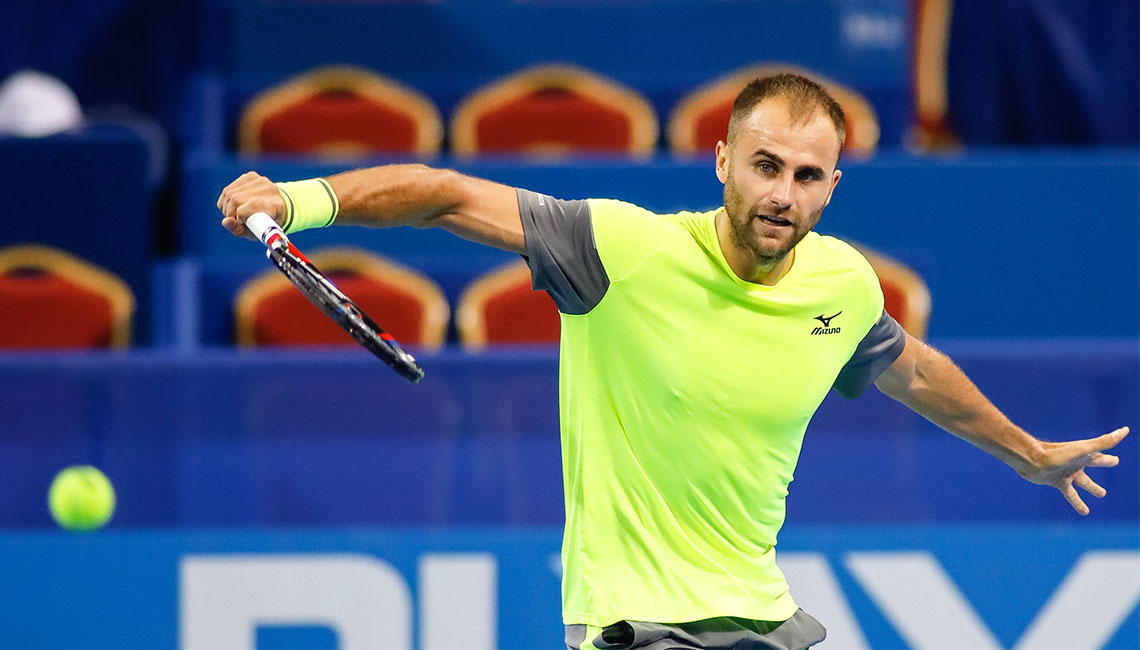01.03.2018
Marius Copil and a bit of sports psychology in tennis

Since ancient times, practitioners of different disciplines in sports have trained hard physically. One component that is often overlooked when analysing the performance of a person sweating on the field of play is the mental preparation that the player undergoes before taking to said field.
This is not some whim of a trainer, or the desire to be admired of a player, but a field of science based on actual psychology, as well as sports psychology and is an extremely important factor in the growth and actual activity of a player. In this sense, sports psychology and should not be overlooked in tennis, which certainly does put a strain on the professional player, as much as any other sport.
Thus, Marius Copil is talking about certain mental techniques that will help a professional tennis player improve his game, as well as master his play style. A tennis player has to learn to control his thinking, as negative thinking will, of course, negatively impact his abilities. In the same way, overconfidence will impede the player in being at his best.
In the inner game of tennis, Marius Copil says that there are three principles one must apply to achieve mastery over his own psychological biases, and that is: quieting his mind, being non-judgemental and finally, trusting one's body.
Learn how to focus on your game and you will be ready to hit the ball.
In training you must experience the benefits of these three steps, so that you are prepared for the court. First of all, quieting your mind means concentrating fully on the game, and nothing else. The second principle means not assuming that your opponent will do one thing or the other without actual evidence of this fact.
This is different from predicting your opponents moves, as you can predict by certain signals what an opponent will do, for example, from a hip movement, or his switching hands, but being judgemental involves none of this, it only involves assuming that he will do certain things because you suppose he will do them. Finally, trusting your body is trusting your tested limits and training. Of course, you can always surpass yourself and go beyond these limits, but trusting what you can do on the court is trusting your body.
While we are discussing trusting your experience and training, we must also mention trying to find your limiting beliefs. These limited beliefs are actually biases that you internalise via unpleasant experiences, which then turn into literal self sabotage.
For example, if in yourself you believe that tie breaks are not your strong suit, you will be more inclined to self sabotage during these moments, in order to confirm what you believe you already know. In order to escape this vicious circle, you must do two things : first, you must be in acceptance of what happens. This will be of serious help, as not fearing an outcome will allow you to focus on your game more and results may just surprise you.
Also, Marius Copil says that an important thing you must do, is to start building confidence as early on as you can. When you are not confident, you will be afraid to take chances and will hesitate in your decisions, which will usually turn into you missing your mark by just a few centimetres. Don't be afraid: train hard and do not let yourself be swayed by small failures or perceived disadvantages.

This philosophy could not have been more on display today.
A match worthy of a Grand Slam final.
Congratulations Marius.
The Nextgen has been getting the press, but you have demonstrated that at 28, a commitment to these principles can be transformative.
May this be the beginning
Phil Jacques
London Ontario